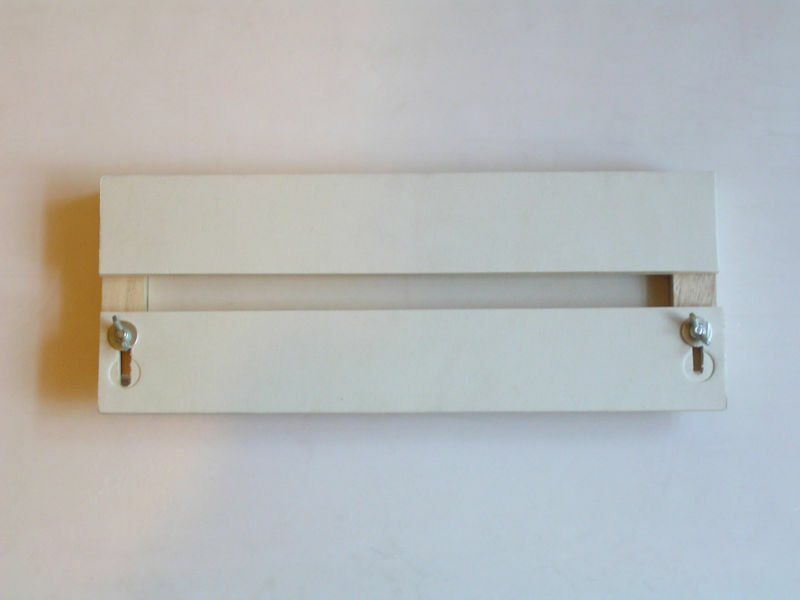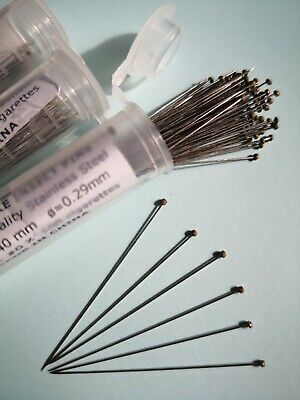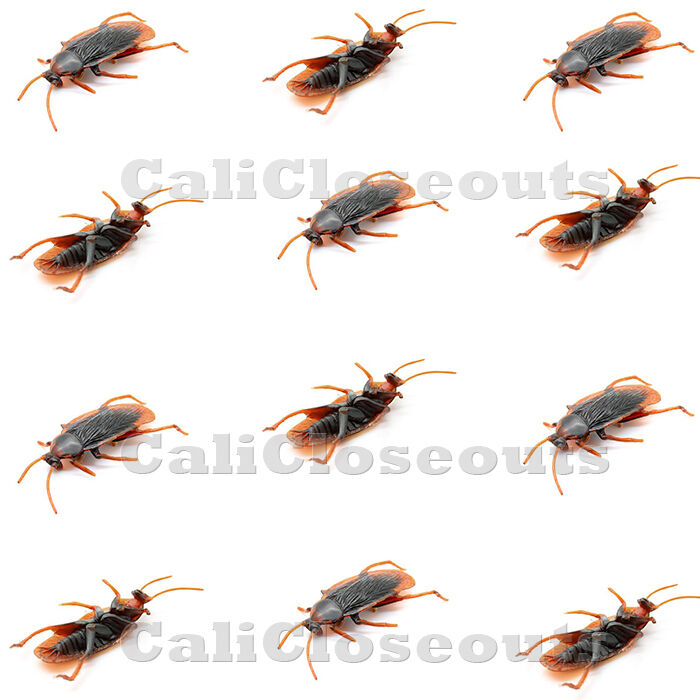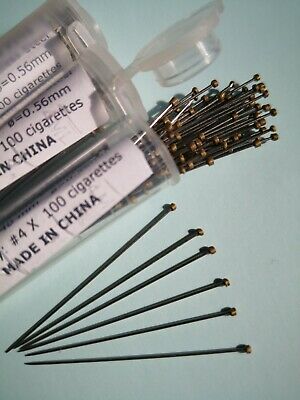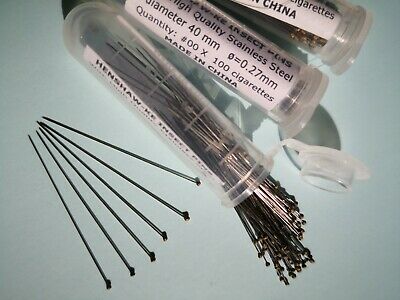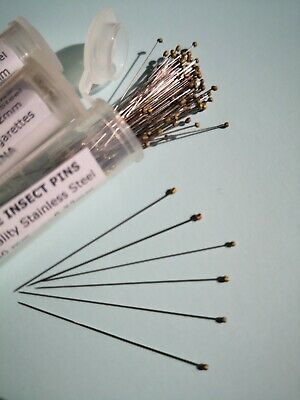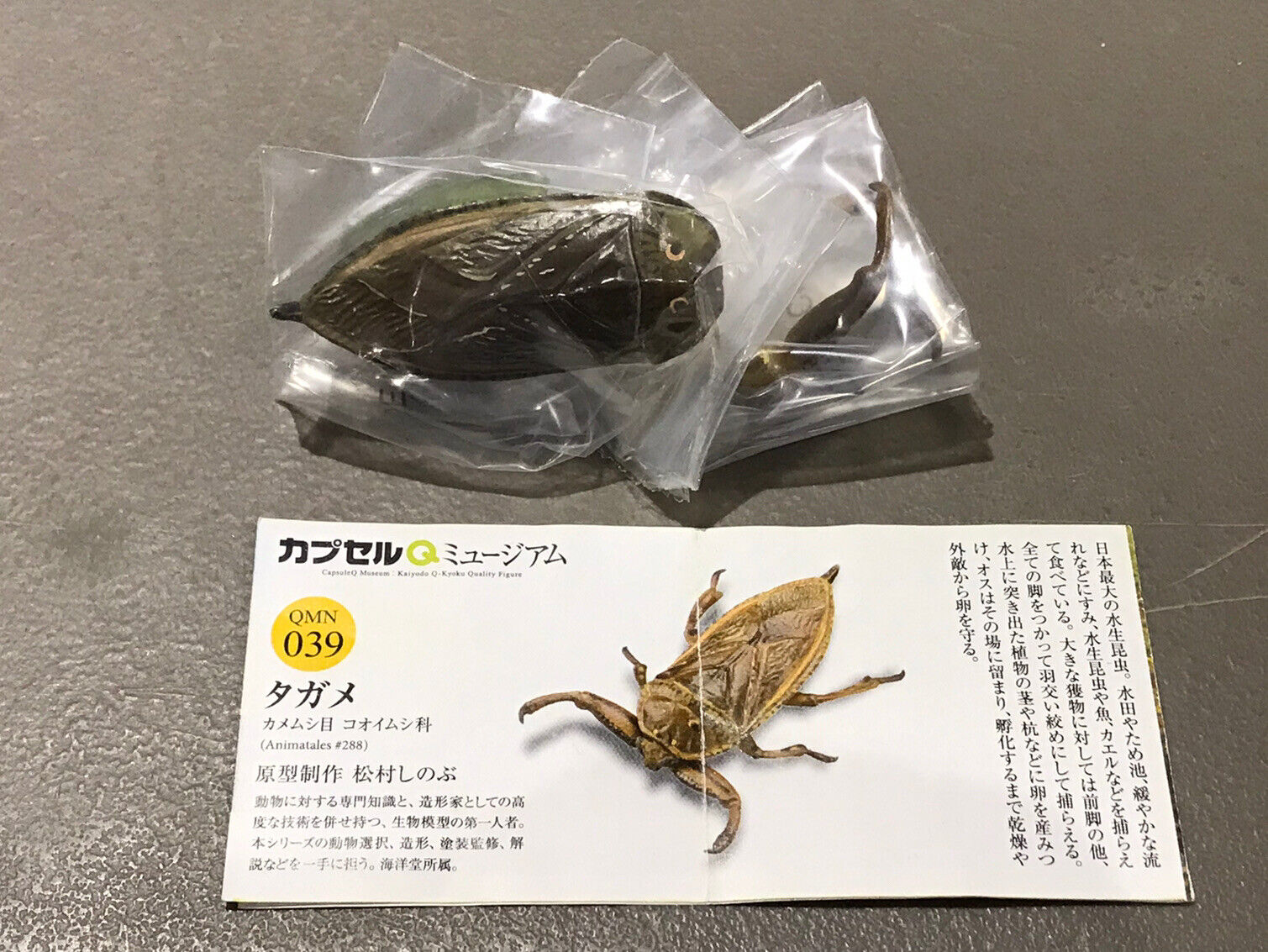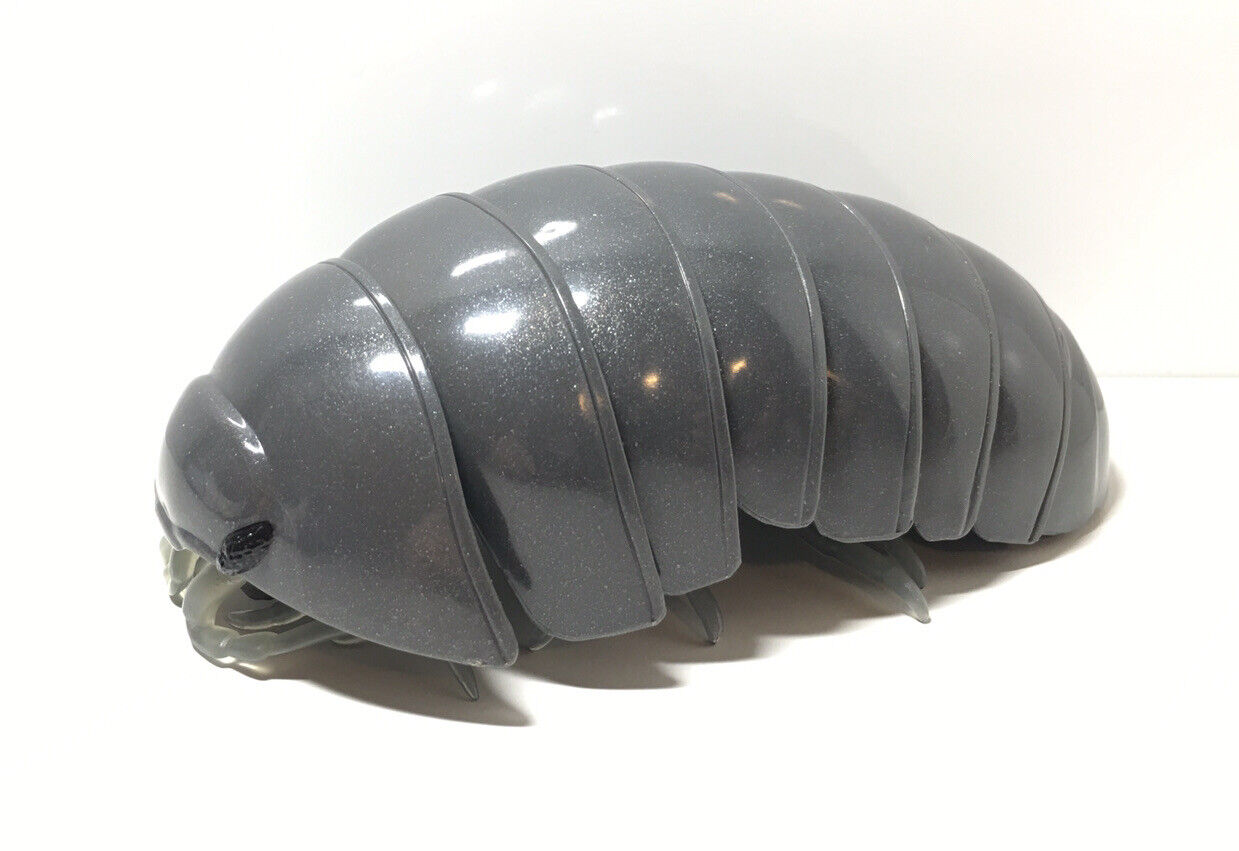-40%
House Fly Life Cycle 4 Stage Simplified Set Education Insect Specimen Slide
$ 9.49
- Description
- Size Guide
Description
Real simplified 4 stages Life Cycle of House Fly - Musca domestica specimen encased in clear lucite material. The specimen is crystal clear, indestructible and transparent. Safe, authentic and completely unbreakable product put real life cycle right at your fingertips!Anyone can safely explore the life cycle from every angle.
It is clear enough for microscope observation.
Size of the lucite block is 75x75x9 mm (3x3x0.4 inch).
Each one comes with a cardboard box for easy storage.
Weight of the lucite block is 60 g and 90 g with packing box.
1) Eggs 2) Larve 3) Pupa 4) Adult
Selltotheworld
From all around the world
House Fly Life Cycle 4 Stage Simplified Set Education Insect Specimen Slide
Real simplified 4
stages
Life Cycle
of
House Fly -
Musca domestica
specimen encased in clear lucite material. The specimen is crystal clear, indestructible and transparent. Safe, authentic and completely unbreakable product put real life cycle right at your fingertips!
Anyone can safely explore the life cycle from every angle.
It is clear enough for microscope observation.
Size of the lucite block is 75x75x9 mm (3x3x0.4 inch).
Each one comes with a cardboard box for easy storage.
Weight of the lucite block is 60 g and 90 g with packing box.
1) Eggs 2) Larve 3) Pupa 4) Adult
It is an ideal learning aid for students and kids and also a very good collectible item for every body.
This is a handmade real animal specimen craft. Each one will be a bit different (specimen size, color and posture) even in the same production batch.
The pictures in the listing are just for reference as we are selling multiple pieces with same pictures.
***
House Fly -
Musca domestica
Order: Diptera Family: Muscidae Subfamily: Muscinae Tribe: Muscini Genus:
Musca
Species:
M. domestica
The
housefly
(also
house fly
,
house-fly
or
common housefly
),
Musca domestica
, is the most common of all flies found in homes, and indeed one of the most widely distributed insects, found all over the world; it is often considered a pest that can carry serious diseases.
The adults are 8–12 mm long. Their thorax is gray, with four longitudinal dark lines on the back. The underside of their abdomen is yellow, and their whole body is covered with hair-like projections. The females are slightly larger than the males, and have a much larger space between their red compound eyes.
Like most Diptera (meaning "two-winged"), houseflies have only one pair of wings; the hind pair is reduced to small halteres that aid in flight stability. Characteristically, the media vein (M1+2 or fourth long vein of the wing) shows a sharp upward bend.
Life cycle
Each female fly can lay approximately 500 eggs in several batches of about 75 to 150. The eggs are white and are about 1.2 mm in length. Within a day, larvae (maggots) hatch from the eggs; they live and feed in (usually dead and decaying) organic material, such as garbage or faeces. They are pale-whitish, 3–9 mm long, thinner at the mouth end, and have no legs. They live at least one week. At the end of their third instar, the maggots crawl to a dry cool place and transform into pupae, colored reddish or brown and about 8 mm long. The adult flies then emerge from the pupae. (This whole cycle is known as complete metamorphosis.) The adults live from two weeks to a month in the wild, or longer in benign laboratory conditions. After having emerged from the pupae, the flies cease to grow; small flies are not young flies, but are indeed the result of getting insufficient food during the larval stage.
Some 36 hours after having emerged from the pupa, the female is receptive for mating. The male mounts her from behind to inject sperm. Copulation takes between a few seconds to a couple of minutes. Normally the female mates only once, storing the sperm to use it repeatedly for laying several sets of eggs. Males are territorial: they will defend a certain territory against other males and will attempt to mount any females that enter that territory.
The flies depend on warm temperatures; generally, the warmer the temperature the faster the flies will develop. In winter, most of them survive in the larval or the pupa stage in some protected warm location.
Behavior
Houseflies can take in only liquid foods. They spit out saliva on solid foods to predigest it, and then suck it back in. They also regurgitate partly digested matter and pass it again to the abdomen.
The flies can walk on vertical planes, and can even hang upside-down from ceilings. This is accomplished with the surface tension of liquids secreted by glands near their feet. When they are not flying, flies continually preen themselves to aid in digestion and remove excess excrement.
Flies have an extremely evolved evasion reaction which helps to ensure their survival. It is possible to confuse a fly's evasion system by swatting it with two objects simultaneously from different directions. The holes in a fly swatter minimize the air current that warns the fly of being hit, whilst reducing air resistance and increasing speed of the swat.
In 2008 it was discovered that a fly anticipates the approach of a threat, calculating the angle of attack, and alters its stance ready to make the most appropriate getaway. This evasive action, which allows the fly to jump away in the opposite direction, takes place within 200 ms.
Houseflies release a pheromone called muscalure that serves both aggregation and sexual attraction purposes.
Item Specifics
Type :
Collector Plate
Material :
Resin
Country/Region of Manufacture :
China
Modified Item :
No
Handmade :
Yes
Payment
By Paypal
Shipping
Free shipping cost.
We send the goods to USA, Canada, UK, Australia, New Zealand, EU countries and some other European and Asian countries by E-express, a kind of fast postal service by Hong Kong Post. It usually takes about 6 to 10 working days for delivery.
We send the goods to other countries by registered airmail and will take about 8 to 14 working days for delivery.
Returns
Returns: We accept returns with any reason in 30 days.
Contact Us
We will answer buyer messages within 24 hours during working days.
Selltotheworld
From all around the world
DESCRIPTION
PAYMENT
SHIPPING
RETURN POLICY
CONTACT US
House Fly Life Cycle 4 Stage Simplified Set Education Insect Specimen Slide
Real simplified 4
stages
Life Cycle
of
House Fly -
Musca domestica
specimen encased in clear lucite material. The specimen is crystal clear, indestructible and transparent. Safe, authentic and completely unbreakable product put real life cycle right at your fingertips!
Anyone can safely explore the life cycle from every angle.
It is clear enough for microscope observation.
Size of the lucite block is 75x75x9 mm (3x3x0.4 inch).
Each one comes with a cardboard box for easy storage.
Weight of the lucite block is 60 g and 90 g with packing box.
1) Eggs 2) Larve 3) Pupa 4) Adult
It is an ideal learning aid for students and kids and also a very good collectible item for every body.
This is a handmade real animal specimen craft. Each one will be a bit different (specimen size, color and posture) even in the same production batch.
The pictures in the listing are just for reference as we are selling multiple pieces with same pictures.
***
House Fly -
Musca domestica
Order: Diptera Family: Muscidae Subfamily: Muscinae Tribe: Muscini Genus:
Musca
Species:
M. domestica
The
housefly
(also
house fly
,
house-fly
or
common housefly
),
Musca domestica
, is the most common of all flies found in homes, and indeed one of the most widely distributed insects, found all over the world; it is often considered a pest that can carry serious diseases.
The adults are 8–12 mm long. Their thorax is gray, with four longitudinal dark lines on the back. The underside of their abdomen is yellow, and their whole body is covered with hair-like projections. The females are slightly larger than the males, and have a much larger space between their red compound eyes.
Like most Diptera (meaning "two-winged"), houseflies have only one pair of wings; the hind pair is reduced to small halteres that aid in flight stability. Characteristically, the media vein (M1+2 or fourth long vein of the wing) shows a sharp upward bend.
Life cycle
Each female fly can lay approximately 500 eggs in several batches of about 75 to 150. The eggs are white and are about 1.2 mm in length. Within a day, larvae (maggots) hatch from the eggs; they live and feed in (usually dead and decaying) organic material, such as garbage or faeces. They are pale-whitish, 3–9 mm long, thinner at the mouth end, and have no legs. They live at least one week. At the end of their third instar, the maggots crawl to a dry cool place and transform into pupae, colored reddish or brown and about 8 mm long. The adult flies then emerge from the pupae. (This whole cycle is known as complete metamorphosis.) The adults live from two weeks to a month in the wild, or longer in benign laboratory conditions. After having emerged from the pupae, the flies cease to grow; small flies are not young flies, but are indeed the result of getting insufficient food during the larval stage.
Some 36 hours after having emerged from the pupa, the female is receptive for mating. The male mounts her from behind to inject sperm. Copulation takes between a few seconds to a couple of minutes. Normally the female mates only once, storing the sperm to use it repeatedly for laying several sets of eggs. Males are territorial: they will defend a certain territory against other males and will attempt to mount any females that enter that territory.
The flies depend on warm temperatures; generally, the warmer the temperature the faster the flies will develop. In winter, most of them survive in the larval or the pupa stage in some protected warm location.
Behavior
Houseflies can take in only liquid foods. They spit out saliva on solid foods to predigest it, and then suck it back in. They also regurgitate partly digested matter and pass it again to the abdomen.
The flies can walk on vertical planes, and can even hang upside-down from ceilings. This is accomplished with the surface tension of liquids secreted by glands near their feet. When they are not flying, flies continually preen themselves to aid in digestion and remove excess excrement.
Flies have an extremely evolved evasion reaction which helps to ensure their survival. It is possible to confuse a fly's evasion system by swatting it with two objects simultaneously from different directions. The holes in a fly swatter minimize the air current that warns the fly of being hit, whilst reducing air resistance and increasing speed of the swat.
In 2008 it was discovered that a fly anticipates the approach of a threat, calculating the angle of attack, and alters its stance ready to make the most appropriate getaway. This evasive action, which allows the fly to jump away in the opposite direction, takes place within 200 ms.
Houseflies release a pheromone called muscalure that serves both aggregation and sexual attraction purposes.
Item Specifics
Type :
Collector Plate
Material :
Resin
Country/Region of Manufacture :
China
Modified Item :
No
Handmade :
Yes
Payment
By Paypal
Shipping
Free shipping cost.
We send the goods to USA, Canada, UK, Australia, New Zealand, EU countries and some other European and Asian countries by E-express, a kind of fast postal service by Hong Kong Post. It usually takes about 6 to 10 working days for delivery.
We send the goods to other countries by registered airmail and will take about 8 to 14 working days for delivery.
Returns
Returns: We accept returns with any reason in 30 days.
Contact Us
We will answer buyer messages within 24 hours during working days.
All right reserved.
Shop Category
Store Home
Fossils
◈ Insects
◈ Plants
◈ Trilobite
◈ Sea animals
Tektite
◈ Loose lots
◈ Single stone
◈ Silver wired pendant
◈ Tiktite hanger
Lapis Lazuli
▷ Polished stones
♢ Loose lots
♢ Single stones
▷ Rough stones
♢ Loose lots
♢ Single stone
◈ Craft items
Turquoise
◈ Natural turquoise
◈ Turquoise substitutes
Stone carving
Rough Stone & mineral
◈ Single piece
◈ Loose lots
Polished Stone & mineral
◈ Single piece
◈ Loose lots
Rough ruby & sapphire
◈ Ruby
◈ Sapphire
Star Ruby & Sapphire
◈ Star Ruby - Opaque
◈ Star Ruby - Transparent
◈ Blue Star Sapphire
◈ Star Sapphire - other colors
Animal specimen items
◈ Life cycle
◈ Collection set
◈ Key ring
◈ Bracelet or bangle
◈ Necklace or pendant
◈ Magnet
◈ Ring
◈ Hanger
◈ Cabochon
◈ Sphere, ball
◈ Laminated specimen
◈ Computer mouse
◈ Stapler
◈ Pen
◈ Bottle Opener
◈ Dome paperweight
◈ Earring
◈ Skeleton
◈ Fish
▷ Single specimens
♢ Spider
♢ Scorpion
♢ Beetle
♢ Marine animal
♢ Bug
♢ Bee, wasp, hornet
♢ Other insects
♢ Bat
♢ Other animal
▷ Butterfly
♢ Butterfly paperweight
♢ Laminated butterfly
Plant specimen
◈ Flower
◈ Leaf
◈ Life Cycle
◈ Collection Set
◈ Laminated items
◈ Seed or root
Stone, mineral, fossil box set
Jewelry crafts
Paper cuts
◈ Small set
◈ Large set
◈ Single piece
Other
Hot Item
10 Mohs Scale Stone Set clear plastic box Learning Real Specimen Kit
USD 20.00
Spotted Lanternfly Cicada Life Cycle Simplified Set Real Specimen Learning Aid
USD 18.00
Black Indochinite Tektite Stone 10 pieces Plastic Box Set Natural Specimen Kit
USD 18.00
Insect Cabochon Golden Scorpion Oval 18x25 mm on black bottom 5 pieces Lot
USD 17.00
Chinese Water Snake Skeleton in 110x45x18 mm Block Education Animal Specimen
USD 35.00
Picture
New List Item
Turquoise Stone Oval 24x10 mm Flat Cabochon 66 Carat 10 pieces 13.2 gram
USD 22.99
Large Key Ring Red Neck Longhorn Beetle YK83 Glow
USD 12.99
Turquoise Stone Oval 24x10 mm Flat Cabochon 66 Carat 10 pieces 13.2 gram
USD 22.99
Turquoise Stone Oval 11x9 mm Flat Cabochon 65 Carat 25 pieces 13 gram
USD 31.99
Turquoise Stone Flat Free Form Cabochon 134.5 Carat 4 pieces 26.9 gram Lot B
USD 23.99
Custom Item







